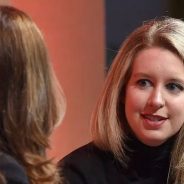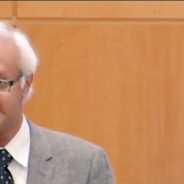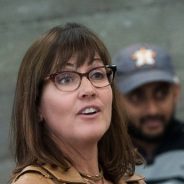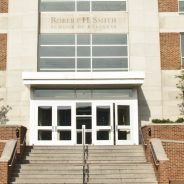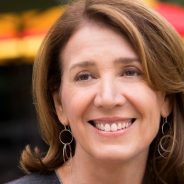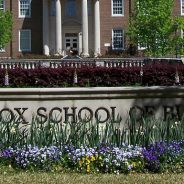Search results for return on investment:
Rotman Prof Talks Theranos Fraud, and More – Toronto News
People affiliated with Toronto‘s finest business schools have been making the news. Below, we’ve laid out some of this week’s highlights.
How Board Diversity Might Have Prevented the Theranos Fiasco – The Globe & Mail
Andras Tilcsik, Canada Research Chair in strategy, organizations, and society at the University of Toronto’s Rotman School of Management coauthored an opinion piece in The Globe & Mail with Chris Clearfield, Principal at System Logic. The article addressed the fraud charges lodged against Theranos founder Elizabeth Holmes.
Holmes, who was listed as one of Forbes’ “Youngest Self-Made Billionaires” has been charged with “massive” fraud involving upwards of $700 million USD. Holmes has agreed to cede control of her company, which was boating more innovated methods of blood-testing to potential investors.
Tilcsik and Clearfield argue that Holmes’s mistakes might have been prevented had a systemic problem in businesses been addressed at Theranos: board diversity. All but two Theranos board members were white men over 60. According to the article, “… lab experiments show that while homogeneous groups do less well on complex tasks, they report feeling more confident about their decisions.”

Holmes’ equity stake in Theranos, the notorious blood-testing startup she founded, has been reduced to virtually nothing after being charged with large-scale fraud from the SEC.
Learn more about the importance of board diversity here.
YouTube Star Choreographs a Career Blending Bollywood and Business – The Globe & Mail
Shareen Ladha, graduate of York University’s Schulich School of Business, used her MBA to guide her in an unconventional career goal. She wanted to build success producing and dancing in Bollywood-esq videos on YouTube, achieving massive momentum when she did a Bollywood-style remix of Justin Bieber’s “Sorry.” The video quickly went viral, and now Ladha balances making YouTube videos with her career as a senior strategist with McCann.
“Through my MBA, I decided that this was the thing that made me unique and it was proof I could bring a creative aspect to strategy and consulting,” Ladha said in a recent profile with the Globe & Mail.
“It started getting woven into my daily life and daily conversations I would have with people. All my social media accounts were public, so if they ever looked me up or were friends with me, they’d know about it. There was such a positive response.”
You can read more about the YouTube star here.
Ivey Students Learn the Three Gs of Good Investing – News@Ivey
Multi-billion dollar Brazilian investment firm 3G Capital Management recently let students at the Ivey Business School at Western University Canada in on a simple secret: the three Gs to successful investing are “good business, good management, and good price.”
3G managing partner Pavel Begun spoke with professor George Athanassakos and his value investing class last month, further explaining what each of those three Gs (get it?) meant:
Good Business:
“’We define good business as one that is competitively entrenched, generates high return of invested capital and is in solid financial shape.’” Specifically, 3G looks at businesses that are industry leaders and show industry longevity in order to predict their future value. They also look to businesses that generate with ROEs, or return on equity, of 15 per cent and above. Finally, they look at the debt payback period of business to ensure it is no greater than three to five years, helping to determine their financial shape.”
To read the rest of the advice gifted from Begun, click here.
What Toronto MBA Can You Earn in the Least Amount of Time? – MetroMBA
Several of the most well-regarded business schools in Toronto offer MBA programs that do not take the typical two-years that a traditional full-time degree often requires.
For instance, the DeGroote School of Business at McMaster University has an accelerated program that takes just eight months to complete. Alanna Shaffer further explains:
“By exempting students from the required first year MBA courses, students can earn their degree quickly while also cutting their overall tuition expenses in half and accelerating their path to employment. The program is designed for students who have earned their undergraduate business degree in the last ten years, and have at least one year of professional experience. Students may start the program in either September or January.”
Check up on the rest of the fastest MBA programs in Toronto here.
Here Are The 7 Hardest MBA Admissions Interview Questions
Clear Admit recently explored seven of the hardest MBA interview questions you may encounter, with helpful tips on how to handle them.
We recently shared our list of the most commonly asked MBA admissions interview questions, along with extensive advice on how to approach such queries. In light of the popularity of that piece, we’ve decided to up the ante this time around and spend some time deconstructing the absolute worst, totally unfair, just all-around-tough MBA admissions interview questions.
How did we do this, you ask? We called on three members of our team—all of whom have significant admissions experience at top schools—to comb through our extensive Clear Admit MBA interview archive and hand pick a set of particularly challenging questions. The only ground rule was that they needed to be questions posed to applicants with some degree of regularity, as opposed to one-off, oddball questions from an ‘off the reservation’ alum.
Arriving readily enough at a set of incredibly tough questions, our team of former admissions officers then crafted extensive guidelines on how to approach each one.
WARNING: Some questions on the list appear very sweet and innocent. Be aware that looks can be deceiving.
If you’re preparing for an upcoming interview, you won’t want to miss this valuable insider advice. It can help make answering even the most challenging questions feel like a walk in the park.
The Seven Hardest MBA Admissions Interview Questions
1. Describe a failure in which you were involved.
Why It’s Tough
Most candidates, when preparing for an interview, focus on the positive aspects of their story. They cannot wait to share their successes and highlight their strengths. So when asked directly to describe a failure, they can be unnerved at best and completely thrown at worst, especially if they haven’t given such a question any thought.
Key Considerations
The type of failure, the time frame of the failure and what you learned as a result will all be relevant in terms of addressing the question.
Risks:
- Picking a failure that is really just a veiled success story, i.e. not a real failure. “We missed one deadline (failure) but we shipped an outstanding product (success).” This type of answer can be perceived as avoiding the question.
- Picking a failure that is so substantial, and recent, that the interviewer genuinely worries that you might make the very same type of mistake again—either due to incompetence or because you just simply haven’t had time to learn from it yet.
Planning Your Response
Make sure you prepare to address a real failure that you played a part in and acknowledge your direct role. While the failure should be substantial, it should not be catastrophic to an organization. Address the process you went through in terms of deconstructing the failure and how you have learned from the experience. Finally, discuss a more recent success that demonstrates your use of the lessons learned from the earlier failure.
2. What other schools are you applying to?
Why It’s Tough
Many professionals in the admissions community feel that this question is simply unfair. There are several reasons for this, one of which is that applicants don’t really know how the answer is going to be used (more on this below). In addition, it’s not as though candidates are allowed to ask their interviewer about the other applicants the committee is considering…
Key Considerations
Fair or unfair, let’s unpack the purpose of the question a bit: Is it to determine your likelihood of attending the program you are interviewing for? Is it to assess whether you are ambitious in terms of school selection or more conservative? Is it simply to see if your list of target schools makes sense and demonstrates a thoughtful approach on your part? Any or all of these options are possible depending on the school interviewing you.
In most instances where this question is used, it is being asked by schools that are concerned about their yield. They want to avoid admitting candidates that clearly will select another school when given the choice. That being said, there are admissions interviewers who ask this question merely to better understand your approach to selecting target schools—and to determine whether you are simply applying to schools ranked in the top 10 or have a more nuanced approach. Regardless, you should prepare a solid answer.
Planning Your Response
There are three parts to addressing the question. First, you do want to be honest even if the question feels unfair. Second, as you list your schools, explain why you chose them. You want to demonstrate that your selections are thoughtful ones resulting from thorough research and careful consideration of your career plan, preferred teaching methods, campus environment, etc. Finally, should make the case for why the school you are interviewing with is a very excellent choice among the group of schools you’ve listed—citing specific elements of the program that fit well with the criteria that drove your overall school selection.
3. Describe a conflict at work and your role in it.
Why It’s Tough
It can be hard to discuss conflict without taking sides or painting some of your colleagues (or yourself) in a negative light. It can also be dangerous to highlight a conflict and appear detached from it—e.g. downplaying your role—because that could suggest either that you did nothing to stop it or that you simply aren’t important enough at work to have played a role/taken a side. In short, this kind of question is loaded with “damned if you do, damned if you don’t” issues.
Key Considerations
A common question in an MBA interview will look at how you handle conflict, and usually conflict at work. Schools ask this question to test your emotional intelligence and to see how you talk about your peers, your bosses, your organization, etc. Even the slightest whiff of “throwing someone under the bus” can backfire. It’s also important to showcase your ability to see the various sides of a conflict.
Preparing Your Response
It makes sense to prepare a particular conflict you have had at work and be ready to use the example. A strong response to this question needs to show your role in the conflict, who it was with, how it was addressed (if, in fact, it was addressed) and what the result was. Equally as important will be to share what you learned from the experience and how a subsequent situation at work was resolved positively or avoided altogether as a result of what you learned.
A New Year, A New Dean: NYU Stern Taps Insider to Fill Top Role
There will be a new dean at the helm when the NYU Stern School of Business rings in 2018, but he’s certainly not a newcomer to the school. NYU President Andrew Hamilton and Provost Katherine Fleming today announced that Rangarajan “Raghu” Sundaram, who joined Stern’s faculty more than two decades ago, has been appointed as dean, effective January 1, 2018.
Sundaram, a professor of credit and debt markets as well finance, was selected by Dean Peter Henry in 2016 to join Stern’s leadership team as vice dean for MBA programs. In that role, he has overseen the school’s full-time MBA program; the Langone part-time MBA program; multiple dual-degree programs; and the Executive MBA program, among others. He also helped establish the Creative Destruction Lab, launch the school’s new, specialized one-year MBA programs, and bring business leaders from companies including Amazon, Jigsaw, Microsoft, IBM, and PayPal to join Stern’s newly created Tech MBA Advisory Board.
Sundaram was among several strong candidates for the dean’s post, the school reports. “But in the end, the Search Committee found the best candidate here in our own midst,” President Hamilton said in a statement. “And rightly so. Raghu Sundaram has a strong, highly-regarded record of leadership and innovation, scholarship and teaching, and collegiality and service to both Stern and the university. In a field of distinguished candidates for Stern’s deanship, Raghu stood out.”
As vice dean, Sundaram is also credited with helping extend the school’s New York City–based EMBA program to downtown Washington DC, and shepherding Stern’s entry into online education through the launch of a series of online certificate programs.
As a researcher, Sundaram’s work has focused on agency problems, executive compensation, corporate finance, derivatives pricing, credit risk, and credit derivatives, areas in which he has published extensively. He also has won several awards, including the Jensen Prize and the Stern School’s inaugural Distinguished Teaching Award, and was a finalist for the Brattle Prize and a recipient of research grants from the National Science Foundation and other organizations.
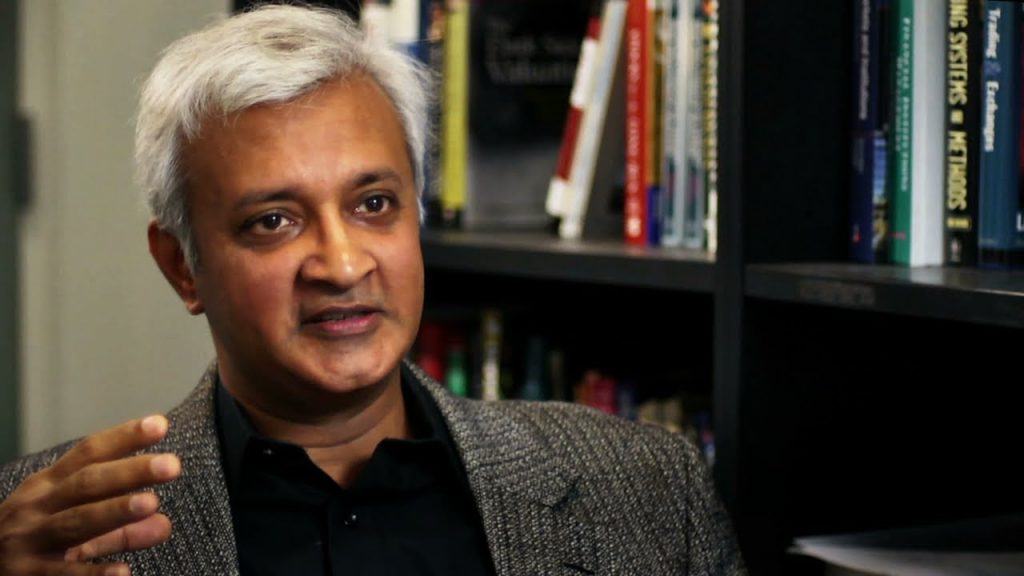
Incoming NYU Stern Dean Rangarajan “Raghu” Sundaram.
The Indian-born Sundaram holds an MBA from Indian Institute of Management, Ahemedabad, as well as both an MA and PhD in economics from Cornell. He taught on the faculty of the University of Rochester for eight years before joining Stern’s faculty in 1996.
Sundaram will replace outgoing Dean Peter Henry, who announced in February of this year his plans to step down and return to full-time scholarship. “At a time when advanced-nation rhetoric and a seeming unwillingness to commit to the reforms needed for growth are at odds with global population trends and an increased need for investment in the developing world, I believe now is the time for me to make further contributions as an economist, advisor and Stern professor,” Henry stated at the time explaining his decision.
Learn more about newly appointed NYU Stern Dean Rangarajan Sundaram.
This article has been edited and republished with permissions from our sister site, Clear Admit.
Two-Year MBA
Johnson Graduate School of Management Two-Year MBA
The Two-Year, full-time MBA program at the Johnson Graduate School of Management at Cornell University is defined by its tight-knit community, one-of-a-kind curriculum, and dual-campus approach. Students are prepared to hit the ground running and stand out among their colleagues—first during their internship and then again as they begin their new career.
Johnson’s full-time Two-Year MBA program features one-of-a-kind curriculum, with fully integrated leadership development components and the opportunity to take advantage of programming offered in partnership with Cornell Tech in New York City.
The first semester of the program is centered around core courses, while the second semester allows students to pursue a particular course of study through an immersion. Students complete a summer internship and complete their remaining year of the program with electives and an optional area of focus.
Curriculum
Johnson’s faculty and lecturers employ a variety of teaching methods, such as case studies, lectures, group projects, team building and leadership activities, and industry treks. MBA classes at Johnson typically begin in late August and end in mid-May, and Commencement occurs shortly thereafter. Johnson works on a semester system, with full-time students completing coursework during the fall and spring terms, and nearly all students go on to complete a summer internship at the end of their first year. Throughout the academic year, Johnson students have short breaks each semester for holidays such as Thanksgiving, with a longer break in between semesters.
Beginning during Orientation and extending throughout the first semester, all first-year students participate in the required Johnson Leading Teams Practicum course. In this course, which is designed to help students develop their leadership skills, MBA entrants work together in small teams of five to six students on problem-solving challenges and core course group projects.
Within the first year of study, Johnson students must complete nine core classes, taking seven in the fall term and completing the remaining two in the spring. The core covers foundational business principles in accounting, marketing, management, operations, strategy, and finance. First-year students must also complete an immersion learning experience in the spring semester by choosing from eight available offerings. Each immersion learning experience includes elective courses, site visits, and case studies that prepare students for post-MBA careers in fields such as strategic marketing, investment banking, and sustainable global enterprise.
In the second year of the MBA program, students can shape their studies by choosing from the school’s more than 80 elective course offerings. Students may further tailor their education to their career interests by pursuing an area of focus from a list of 12 options. Johnson also allows students to take courses at other Cornell University schools and apply them to the MBA degree. Finally, students looking for international exposure can spend a semester studying abroad at one of Johnson’s 30 exchange partner institutions.
Class Profile
The Johnson Two-Year MBA Class of 2024 enrolled 303 students. Students in the class of 2024 had a median GMAT score of 710 and a median GPA of 3.30. The incoming class also had a mean of five and a half years of work experience. Thirty-nine percent of the first year students were women, while 16 percent were underrepresented minorities, which refers to students of African American, Native American, and Hispanic American backgrounds. Domestic students accounted for 57 percent of the class, with the remaining portion of students coming from outside of the United States.
Career Statistics
About 93 percent of Johnson’s Two-Year MBA Class 2020 received job offers. The average starting base salary for Johnson graduates was $138,767, while the mean signing bonus accepted by recently minted Johnson MBAs was $36,391. Thirty-four percent of the Class of 2020 accepted finance positions, including 22 percent pursuing roles in investment banking. Consulting was the second-most popular function and was chosen by 30 percent of the class. Meanwhile, 21 percent of 2020 Johnson MBA graduates moved into management and about 9 percent opted for marketing.
Tuition, Scholarships, and Financial Aid
The tuition for the Johnson full-time MBA is $76,690 per year. However, the school estimates that with additional expenses such as rent and textbooks, students will pay up to $107,622 in that time. To help students finance their studies, Johnson offers a range of merit-based scholarships. Admitted students are automatically considered for certain merit-based awards, and about 30 percent of Johnson students receive related financial support. The most prestigious of scholarships offered to incoming students is the Park Leadership Fellowship, which provides a full-tuition grant for up to 25 entrants who apply for this fellowship.
Johnson is part of The Consortium for Graduate Study in Management, an organization devoted to promoting diversity in business schools. MBA candidates may apply to Johnson through The Consortium, and they are then eligible for full-tuition fellowships. For those applicants who did not receive awards during their first year, there is one scholarship opportunity open to returning students: the Fried Fellowship. There are also a variety of loan options available to Johnson students, including federal loan programs for U.S. citizens and private loans for international students.
Admissions for the Cornell Johnson Two-Year MBA
Applicants can elect to apply to Johnson during one of four admissions rounds, which usually occur in October, November, January, and March. Johnson requires applicants to submit their completed online application along with essays, a resume, GMAT or GRE scores, and transcripts from all collegiate and post-collegiate institutions attended. Applicants must also submit one letter of recommendation and an optional second letter. For applicants whose first language is not English are required to submit TOEFL or IELTS score. All applicants must pay a $200 non-refundable application fee. After applications are evaluated, the admissions committee conducts interviews on an invitation-only basis. Interviews may take place on campus with a current second-year MBA student or member of the admissions committee, while those applicants who cannot travel to Ithaca can complete an interview via Skype.
Application Checklist:
• Completed online application form
• Resume
• List of activities
• Goals Statement and one required essay (a second essay is optional)
• Academic records and transcripts for all post-secondary coursework and degrees*
• GMAT or GRE score report (test waiver optional)*
• TOEFL or IELTS score report (for applicants whose first language is not English)*
• One letter of professional recommendation (a second letter is optional)
• Non-refundable $200 USD application fee
*You may submit unofficial copies of your transcripts and test scores for your application; however, if you are admitted and enroll, you will be required to submit official copies of these documents by the required deadline. Offers of admission are not binding until we verify your official academic records and test scores.
2022-2023 Cornell Johnson Two-Year MBA Deadlines
Round 1: September 22, 2022
Round 2: January 10, 2023
Round 3: April 11, 2023
Get an MBA Admissions Edge with the LiveWire Data Dashboard
Curious about your chances of gaining admission to top business schools? Now you can see how hundreds of previous applicants fared at SC Johnson in just a few clicks. The LiveWire Data Dashboard’s interactive data visualization tools allow you to spot trends, compare MBA programs, and benchmark your stats against successful applicants at your target schools. Learn more here! Ready to explore the data? Purchase a 30-Day or 365-Day subscription in our shop for immediate access!
The Life and Career of Edwin G. Booz and James L. Allen – Booz Allen Hamilton
Booz Allen Hamilton is one of the world’s largest and most recognizable management consulting firms. Headquartered in McLean, Virginia in the Washington DC metro, the firm boasts 24,225 employees working in more than 80 offices around the globe.
The firm has gone through several name changes in its 100 years of existence, including: Edwin G. Booz, Business Engineering Service; Edwin G. Booz Surveys; Edwin G. Booz and Fry Surveys; Booz, Fry, Allen & Hamilton; Booz, Allen & Hamilton; and finally Booz Allen Hamilton. Today, we’ll focus on two of those names, and the men behind them: Edwin G. Booz and James L. Allen, both Northwestern University Kellogg School of Management graduates.
Early Upbringing and Education
Born in Reading, PA in 1887, Edwin George Booz obtained his Bachelor’s degree in economics in 1912 and his Master’s degree in psychology in 1914 from the Kellogg School of Management. After earning his Master’s, Booz founded Booz Allen Hamilton in 1914 in Chicago, originally under the name The Business Research Service.
However, he was drafted into the Army as a private due to World War I in September 1917, and rose to the rank of major. He worked with the War Department in Washington DC to reorganize the business methods of its various bureaus.
Booz left the Army in March 1919 and returned to his business, servicing bankers, manufacturers, advertising agencies, wholesalers, sales managers, publishers, real estate operators, and other enterprises. He would go on to lead the firm as its chairman until 1946, and continued to work part-time for clients and to mentor the next generation of leaders until his death in 1951.
Meanwhile, James L. Allen was born November 21, 1904, in Somerset, Kentucky. He was raised on a farm, educated in public schools, and graduated from Somerset High School in 1921. In 1922, he left the small town for Chicago where he worked at several jobs and attended night school. Allen graduated in 1929 with a B.S. degree in Economics from the Kellogg School of Management.
After graduating, Allen joined Booz’s firm, Edwin G. Booz Surveys, in 1929. He was named a partner in 1936, and focused on developing business strategy, personnel, and organization studies. In the early ’40s, Allen and Booz worked for the U.S. Military leading up to World War II.
Allen was named chairman of Booz Allen Hamilton in 1946, and held that position until 1970. During this time, the firm enjoyed steady growth as it increased its number of partners, staff, and locations. He was named honorary chairman in 1970 and remained involved with Booz Allen Hamilton until his death in 1992.
CHECK THIS OUT: How Chicago Business Schools are Helping Low-Income Students
About the Company
Booz Allen first went public in 1970 with an initial offering of 500,000 shares at $24 per share. In 1976 public trading ceased after Booz Allen’s partners bought back stock in the largest-ever leveraged buyout involving a consulting firm. Years later, in 2007, managing director Marc Gerencser explained that being privately held allowed the firm to consider long-range investments that companies beholden to shareholders might not be able to make.
In June 2012, Booz Allen expanded its operations in North Africa and the Middle East, bringing offices to countries like Kuwait, Oman, Qatar, and the United Arab Emirates. Booz Allen specifically helped the Government of the United Arab Emirates a sort of National Security Agency for that country. The New York Times reported that the company “profits handsomely from its worldwide expansion.”
In 2014, Booz Allen Hamilton Holding Corporation was awarded a “Top 2014 Workplace” by the Washington Post.
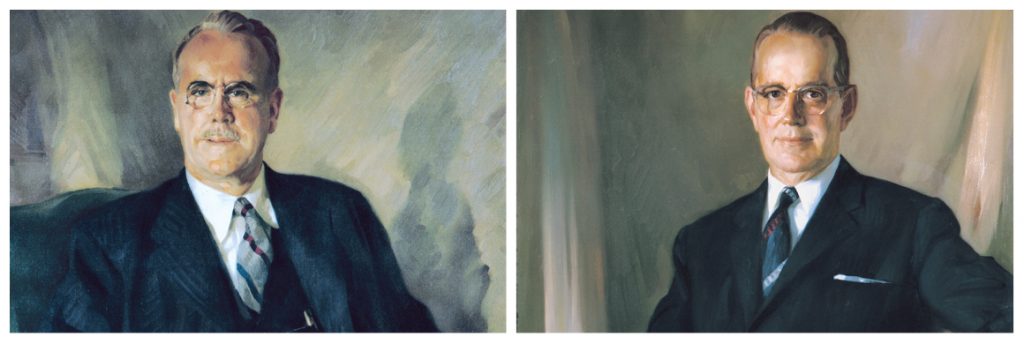
Legacy
Edwin Booz’s name is immortalized as the only name to remain with the firm from its humble beginnings through today. He believed that he could help companies prosper by bringing them “a human touch” and insisted that “people, not products” were the focus of work. This approach gave birth to the modern management consulting profession.
Meanwhile, Jim Allen’s legacy lives on at the Kellogg School of Business at the James L. Allen Center. According to Kellogg, the Center hosts more than 6000 executives each year for one or more of the school’s 160 executive education programs. Considered “an academic retreat,” the Allen Centers offers living and learning spaces to the Kellogg community. Technologically enabled classrooms and comfortable gathering and group study spaces facilitate peer learning and informal interactions among faculty and participants. Additional amenities include indoor workout areas and outdoor exercise programs along the Lake Michigan shoreline provide opportunities for the occasional (and necessary) break and breather.
Stevens Alum Takes Disruptive FinTech Lessons Back Home to Brazil
ZeroBeta founder Rodrigo Silva Cosme, a MS ’16 Stevens Institute of Technology’s School of Business graduate, recently returned to his alma mater to present his master’s thesis, explaining how machine learning can apply to financial markets.
Cosme, who was invited by Professor Khaldoun Khashanah, explains; “The world is getting more automated, more efficient, more intelligent, and finance is no different. You need complete professionals who know how to code and also can handle the financial side of the business and implement solutions.” Cosme, who arrived in the United States with a “lifetime fascination with financial markets,” believes people who choose to trade by themselves can’t do it optimally.
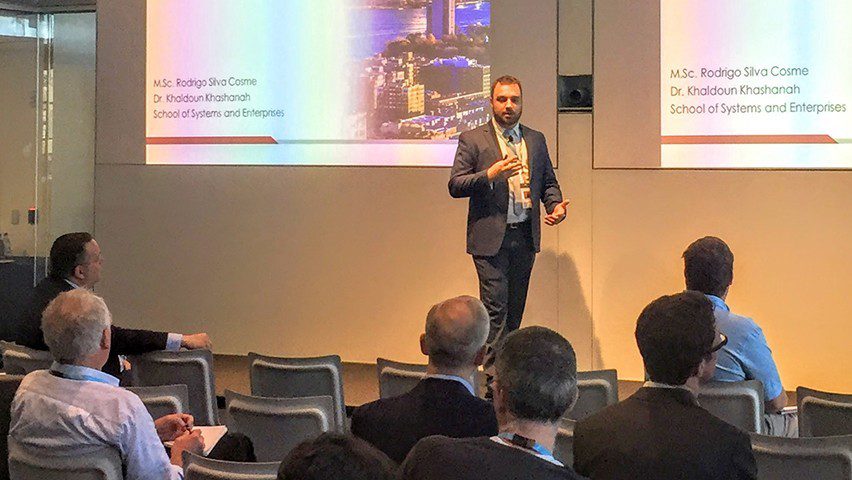
Rodrigo Silva Cosme delivers his thesis at a recent Bloomberg conference at Stevens/Photo via Stevens.
The São Paulo-based ZeroBeta is a unicorn of sorts in the Brazilian market, which “lacks the liquidity that allows for more diversified risk in investment strategies.” The startup leverages algorithmic trading and portfolio optimization techniques to “build smarter strategies for trading.
Cosme continues, saying, “Instead of working for [hedge fund managers], we trade with them—we develop the strategies for the accounts, we make the trading decisions, and they do the commercial side of the business, getting customers and raising capital.”
Cosme attributes ZeroBeta’s success largely to the first-hand exposure he received at Stevens to the myriad ways that finance and technology can intersect. “What I do at my job, every day, is what I learned at Stevens — from trading option spreads, to coding through C++ design patterns, to portfolio rebalancing. If you’re not able to find the answers with the kind of resources Stevens has, you can’t find them anywhere.”
Gain a Global Edge with These Philadelphia International Business MBAs
Every day, it becomes easier and easier to make connections across the world, building a global network of business and resources that can help to benefit the world. Due to an increasingly global economy, possessing a deep knowledge and understanding of the way global markets work can be a crucial part of building a business career. There is almost no limit to the types of opportunities an education in global business will provide: from working in the fields of international trade, global business operations or planning or industrial development, and being employed by international agencies, non-profit organizations, governmental, or both public and private corporations.
According to Michigan State program globalEDGE, “demand continues to grow for individuals who understand the global context of business: from the logistics of international trade and cross-border investments to the cultural and ethical issues that are imbued in the practice of business around the world. By studying international business, you will learn about world cultures and societies, and be challenged to approach issues from different perspectives.”
In choosing to study international business in the Philadelphia metro area, aspiring business leaders can center themselves in a growing market at the center of United States history and global trade. We’ve rounded up some of the area’s top MBA programs that offer a concentration in international business, allowing students to gain specific knowledge and skills to make an impact in the global economy.
Fox School of Business – Temple University
Consistently rated one of the top business schools in the country, the Fox School of Business at Temple University offers students a number of opportunities to gain skills and earn a degree in the field of global business. The Global MBA program, based in Philadelphia, is taught by world renowned faculty and is designed to provide an experiential education in international economics, with live consulting, internship and professional development opportunities. Additional programs like the MBA from Temple University Japan in Tokyo and the EMBA at Temple University Paris offer further opportunities for students to gain a hands-on global experience with a strong business background.
Lerner College – University of Delaware
The MBA at University of Delaware’s Lerner College of Business gives students the opportunity to concentrate in international business, providing the solid business background they will need to effectively conduct business in a global environment. In addition to U.S. citizens looking to expand their knowledge in international business and help their organizations to expand overseas, many students in the Lerner MBA program are international, returning home with a deep understanding of U.S. customs and the ability to navigate business across borders.
YOU MAY ALSO LIKE – Searching for the World’s Top MBA Recruiters: Comcast
Rutgers School of Business, Camden
Students interested in concentrating in International Business and Operations can do so at the Rutgers School of Business by pursuing a number of electives in the field. Students can take a number of electives in the fields of International Business and Operations Management to complete the concentration, including courses like: International Management, Global Operations Information Technology, Global Marketing Strategy, and International Study Abroad in countries such as South Africa, France, and Brazil.
Smeal College of Business – Penn State
While the Smeal College of Business at Penn State does not directly offer a concentration or major in international business, it is an available as an option. At Smeal, options constitute a briefer but still targeted study within a particular area, allowing students to gain a deeper education in Global Business while still receiving the more general education of an MBA.
The Wharton School – University of Pennsylvania
The Wharton School at UPenn, well-known as one of the top business schools in the world, provides students the opportunity to pursue a joint MBA/MA in International Studies. The MBA/MA Lauder Joint-Degree provides students a range of resources and educational experiences in global business, such as the Global Knowledge Lab, which involves students working together as a team to produce a thorough research paper/master’s thesis. The program also includes two short global immersions and an optional ten-day trek called Culture Quest, organized completely by students in the program. The six areas of concentration students may choose to specialize in include: Africa, East and Southeast Asia, Europe, Latin America, South Asia, the Middle East, and North Africa.
New Haas Center Seeks to Tackle Gender, Equity, and Leadership Head On
As one headline after another alleges sexual harassment against women by men in power from Hollywood to Congress, the launch earlier this month UC Berkeley’s Haas School of Business of a new Center for Gender, Equity, and Leadership (CGEL) seems more timely than ever. In fact, the idea for the center significantly predated the current media firestorm—and while its scope will certainly include sexual harassment, it will be significantly wider—addressing issues ranging from the persistent gender pay gap to inadequate maternity leave to the fact that currently only 5.6 percent of CEOs at S&P 500 companies are women.
Since 2014, Kellie McElhaney has been teaching a course at Haas called “The Business Case for Investing in Women.” Regularly over-subscribed, the immensely popular class won McElhaney, an associate adjunct professor at Haas, the Earl F. Cheit Award for Excellence in Teaching. Students in the class were eager for data demonstrating that companies with greater numbers of women in leadership have higher share prices and better returns on equity and investment than companies with fewer women. In fact, so too were companies. And McElhaney delivered.
Together in a 2016 study with Genevieve Smith of the International Center for Research on Women’s advisory practice, McElhaney zeroed in on how Gap Inc. has managed to achieve pay equity at the like-for-like level and equal pay at the organizational level through its company culture, practices, and policies. The relationships that helped spur that research also led the Gap Foundation to become a founding corporate donor of the new center—contributing part of the $1.9 million McElhaney has raised to date, which also includes gifts from alumni and friends. With an ultimate fundraising goal of $10 million, McElhaney hopes CGEL will bring together leaders from many backgrounds to help advance gender and diversity in policy and business, engage male and female allies and people of all ethnicities, races, and classes around a shared goal of gender and diversity, and develop business leaders who view gender as a spectrum rather than a binary construct.
“The idea for the center has been percolating for years,” McElhaney tells Clear Admit. “We had kind of a scatterplot of things happening at Haas before, but no over-arching strategy.” In addition to McElhaney’s own research and teaching, several other Haas professors have been contributing to growing scholarship on gender, equity, and leadership. Professor Laura Tyson’s research and writing has examined how gender equity works around the globe—including how it is associated with better education and health, higher per capita income, faster and more inclusive growth, and greater international competitiveness. Currently faculty director of the Haas Institute for Business & Social Impact, Tyson will form part of the leadership team of CGEL. Professor Laura Kray, who studies gender stereotyping and negotiations, rounds out the inaugural CGEL leadership team.
“The first mission of the center will be to serve as a hub for all the things that have already been happening in pockets all over Haas,” says McElhaney. “There are already courses on power, race, gender, equity,” she explains. “In earnest, we thought to ourselves, ‘Let’s look at all that is happening here around these issues. Wouldn’t it be more effective if we could bring it all together, see what we are doing, and see where we might benefit from going long and deep?”
“At Berkeley, you can build anything—but it has to be funded first,” explains McElhaney. Encouraged by Dean Richard Lyons, she set out to raise $1 million by July 2017 as a proof of concept. In June, CGEL had garnered $1.2 million in funds. In addition to corporate funding from Gap, McElhaney also wooed significant gifts from several high-net-worth individuals through a series of strategic luncheons focused on looking at the world vis-à-vis gender equity. “A dozen individuals gave money right away, and now we’re heavy into the corporate funding component,” she explains.
Expanded Faculty Research, Policy Impact, Radical Fierce Ally-ship
Beyond continued fundraising, McElhaney intends to start 2018 with content and substance—with CGEL serving as a hub for new in-depth faculty research, corporate collaboration, conferences, training sessions, and the development of new courses related to gender, equity, and leadership. In addition to McElhaney’s own work documenting the business case for gender equity, several other Haas professors have also been engaged in pathbreaking research. For example, Professor Clayton Critcher has studied the multiple negative consequences of concealing one’s sexual orientation at work; CGEL leadership team member Kray’s recent work examines how fixed beliefs about gender roles preserve the status quo; and Professor Jennifer Chatman has helped reveal how political correctness in the workplace reduces uncertainty in relationships, encouraging greater creativity by both men and women.
Another point of focus for CGEL will be on the intersection between policy and business. “We want to bring together political and business leaders to look at the things on the political agenda that are moving us backward and how we prioritize them,” McElhaney says, offering pay data transparency and mandatory maternity leave as two examples. “We need to bring business voices into the political fold.”
Developing “radical fierce allies” will be another key priority for the center, she continues. “Men need to come to the table in terms of being ambassadors, but so, too, do women,” McElhaney stresses. “As a white woman, I am earning 80.5 cents on the dollar compared to my male counterpoints, but if I were an African-American woman, that would be 60 cents.” The center will host strategically curated salons to talk about all of these issues, drawing together women of all races, classes, and gender identities to talk about how all women need to be better allies for one another.
CGEL’s Time Is Now
Dean Lyons notes that center’s launch is well timed. “The majority of CEOs include gender equity among their Top 10 priorities, yet boardrooms and C-suites are not changing quickly enough,” he on the Haas website. “While the commitment to diversity and an inclusive work environment is there, too few have a handle on solutions. Our new center will work toward immediate change in these areas and pave the way for future generations.”
McElhaney agrees. “We have a ton of traction, and the appetite is so high for this,” she says. But not only are they hitting it at the right time, but also at the right place, which is Haas. “We have just the right mix of ingredients that other schools can’t claim,” she says. “While other schools are focusing more on diversity or counting the heads, we are focused comprehensively on inclusion in our classrooms—through our cases, our choice of course speakers, our faculty teaching methodology, and our student culture.”
CGEL’s launch will help ensure that Haas students hear about gender, equity, and leadership in every class. “This is a new center that puts on the map that this is something we care about,” she says. “We graduate 100 leaders every year—and going forward we are going to graduate 100 diversity fluent leaders. I think we are uniquely positioned to become a talisman of all things equity.”
Learn more about Haas’s new Center for Gender, Equity and Leadership.
This article has been edited and republished with permissions from Clear Admit.
Merage School of Business MBA Earns Praise From The Economist
The UC Irvine’s Merage School of Business received some good news after the school was ranked in latest business school rankings of The Economist. The school placed 39th in the nation, 16th among public schools, and 56th in the world. The Los Angeles metro business school also scored well in categories including 29th in Open New Career Opportunities; 17th in alumnus rating of career services; and 13th in salary increase.
Continue reading…
Your Search for Atlanta’s Best Accelerated MBA Programs
Most folks pursuing an accelerated MBA know which industry or area of concentration they want to pursue. They are MBA candidates who want to advance their current careers, not switch them. Others choose the accelerated route because it can be difficult to leave two years of work and salary. Continue reading…
Paul Merage School of Business Full-Time MBA Earns Spot On Forbes’ Best Of List
The Paul Merage School of Business at the University of California, Irvine received some heavy honors from the recently-revealed Forbes list of the “Best Business Schools” in the U.S., which analyzes how much graduates typically earn five years after graduation. This year, the business school ended up 41st on the list overall, with a $47,000 USD five-year expected gain for full-time MBA grads.
Continue reading…
UMD Smith Students Gain New Opportunities Through Snider Center
The Snider Center at the University of Maryland R.H. Smith School of Business opened new opportunities and broadened experience for many Smith School students this summer.
Choosing the Best Business School for Consulting
If you are a prospective MBA applicant looking to business school as a way to enter or accelerate your career in the consulting industry, you are certainly not alone. According to the 2017 Prospective Student Survey conducted by the Graduate Management Admissions Council (GMAC), consulting is once again the most sought-after postgraduate industry, with 33 percent of applicants surveyed citing consulting firms as their destination of choice. The consulting function, too, is a top draw. One in four indicated it as their chosen job function, after just marketing/sales (30 percent) and finance/accounting (28 percent).
With so many MBA graduates vying for roles in the consulting field, one of the best ways to distinguish yourself is by going to one of the business schools best known for training top-notch consultants. Of course, this requires thorough research and a deep knowledge of individual school programs. Lucky for you, Clear Admit has done some of the legwork.
Consulting Continues to Be a Top Draw for MBAs
Finance—and investment banking in particular—took a hit following the financial crash of 2008. And the tech sector has been gaining ground as a top destination for MBA grads. But along the way, the consulting industry has held its own, with MBAs clamoring to work for both towering giants in the field as well as at an increasing number of boutique firms now in the marketplace.
What’s the allure? Part of it is the diverse work. Consultants get to think creatively and solve problems, analyze both the big picture and the details, and work on teams juggling multiple assignments. Top salaries don’t hurt either. Recent MBA graduates taking jobs at firms like McKinsey & Company, Boston Consulting Group (BCG), and Bain & Company—known as ‘the MBB firms’ in industry parlance—reported base salaries in 2017 of between $147,000 to $152,500, with additional signing bonuses of $25,000, according to managementconsulted.com, an online resource for the consulting industry.
Choosing the Best Business School for Consulting
Determining which leading business school will best prepare you for a career in consulting requires looking at a range of factors. A logical place to start is by examining career outcomes at individual schools, both in terms of summer internships and full-time jobs. If possible with the available data, you also want to get a sense of how well a school has done placing career-switchers, namely those without prior consulting experience, in coveted consulting roles, since barriers for entry for these grads are understandably higher than for their counterparts who have already worked in the field.
It can also be instructive to see which of the powerhouse consulting firms donate to which leading business schools. Finally, it helps to understand how a given school goes about teaching its students to be consultants, what role experiential learning plays, whether you can hope to learn directly from superstar professors in the field, and what extracurricular resources are in place to help you land your dream consulting gig.
Consulting at UVA Darden
The University of Virginia’s Darden School of Business sent more of its MBA graduates into consulting than any other U.S. school, with 38 percent of the Class of 2016 pursuing work in the consulting industry and 38 percent choosing a consulting function. By comparison, Harvard Business School (HBS) sent 25 percent of its 2016 graduates into consulting, and Stanford Graduate School of Business sent just 16 percent.
As for the top recruiting companies at Darden, Boston Consulting Group snapped up 18 members of the Class of 2016, followed by McKinsey & Company (14), PwC (13), and Accenture (10).
In terms of pay, the average base salary for a Darden MBA heading into consulting was $135,771 with a signing bonus of $26,927. While this isn’t the highest salary in the industry—it falls a few thousand dollars short of offers reported by students at schools like Kellogg School of Management—it is the highest average salary for all Darden MBAs.
Darden’s Classroom, Curriculum, and Professors
As for how Darden trains its MBAs to enter a career in consulting, the school offers a career track concentration in strategy consulting. This concentration is designed to immerse MBA students into the consulting process by helping them identify and deepen their consulting skill sets.
Darden is also known for its case study method of teaching and learning. This method confronts Darden MBA students with challenging, real-life business situations and teaches them how to analyze each situation to come up with a solution—just as they will be called upon to do in a consulting career. Over the course of MBA students’ two years at Darden, they’ll complete in more than 500 case studies on a variety of topics, industries, and diverse environments.
As for Darden’s faculty, many of the school’s professors have an in-depth knowledge of consulting with a breadth of research dedicated to all facets of the field. For example, Samuel E. Bodily, a professor of business administration, teaches “Decision Analysis” to first-year students and “Management Decision Models” to second-year students while also consulting with many corporations, utilities, and government agencies. And Scott. C. Beardsley, Darden dean since 2015, spent 26 years at McKinsey & Company before joining the school.
Outside the Classroom
Darden is home to the Consulting Club, a student organization designed to support students interested in the consulting industry. The club regularly holds events such as consulting industry panels, networking 101, consulting conferences, case competitions, mock interview sessions, internship preparation workshops, and more. And many large consulting companies are club sponsors, including Deloitte, AT Kearney, Bain & Company, EY, and Accenture.
In addition, there are also a variety of consulting projects for MBAs to participate in. These projects help MBAs learn how to develop business plans, create financial forecasts, and perform marketing analysis. For each project, teams of three to six students will work with corporations, global businesses, or non-profit organizations to provide strategy evaluation and planning services.
INSEAD For Consulting
In terms of sheer numbers, no school sends more students into consulting jobs than INSEAD. According to the school’s latest 2016 MBA employment report, 46 percent of INSEAD MBAs took a job in the consulting sector and 48 percent assumed a consulting function. That’s a whopping 479 students accepting a position as a consultant—almost half of the 999 students who filled out the employment report.
INSEAD’s MBA graduates took jobs with such companies as McKinsey (which hired 125 INSEAD grads in 2016), BCG (67), Bain (48), Strategy& (24), and Accenture (16). And it’s no wonder the major players like INSEAD. Many alumni hold prominent positions such as chairmen, CEO, or senior leader at these same top consulting firms.
As for where these consulting grads work, they’re spread out around the world. More than 100 consulting graduates took jobs in Western Europe, 41 of those in the United Kingdom. Another 83 graduates headed off to consulting offices in Asia Pacific, including 23 each in Singapore and Australia. But the single most attractive country for INSEAD consulting grads was the United Arab Emirates, which drew 42.
INSEAD also features an alliance with the University of Pennsylvania’s Wharton School, allowing INSEAD students to spend one of their five periods studying at the U.S. school. INSEAD has a similar campus exchange with Kellogg as well. These exchanges afford INSEAD students access to those schools’ career management centers as well, which can be especially valuable in terms of making connections to U.S. recruiters for students who are interested in working in consulting in the United States after graduation.
In terms of what its consulting grads command in salary, INSEAD also shows strong numbers, albeit lower than Kellogg and Darden. For 2016, the overall mean salary in consulting was $107,300 USD, the overall median salary was $109,500 USD, and the overall annual median sign-on bonus was $25,000, with 76 percent of salaries coming with a sign-on bonus and 83 percent with a performance bonus around $24,500.
Proud of its success in helping career switchers enter new industries, INSEAD shares data about how many of its graduates heading into consulting started out there and how many used business school to make a pivot. Of those graduates taking jobs in consulting after INSEAD, 67 percent held pre-MBA roles in consulting. But 34 percent of those who were financial services professionals also successfully switched to consulting, as did 56 percent of former technology, media, and telecommunications professionals and 38 percent of former corporate sector professionals.
How Consulting Is Taught at INSEAD
INSEAD’s accelerated 10-month MBA is composed of five, eight-week periods built around core courses and electives and concluding with an exam, essay, and/or project. There is no preferred teaching method at INSEAD; instead, individual professors choose the method they feel is best. However, no matter the teaching style or technique, each class is sure to have lively exchange opportunities and diverse study groups.
In terms of core courses, students will start out their first eight weeks with an “Introduction to Strategy” course and will continue their learning into the next period with “Process & Operations Management.” As for electives, over a dozen courses are offered under the Strategy heading including the “Strategy Lab,” which provides MBA students with a practitioner’s view of how consultants tackle projects.
Who Trains Consultants at INSEAD
There are more than 25 resident strategy professors across INSEAD’s three campuses, as well as around a dozen visiting faculty members. Of these, several are former consultants, bringing experience straight from the trenches at McKinsey, Monitor Group, and Accenture, among other leading firms.
Two INSEAD professors, W. Chan Kim and Renée Mauborgne, authored a best-selling book called Blue Ocean Strategy, which spawned the 2007 launch of the INSEAD Blue Ocean Strategy Institute. The institute offers several programs and electives that support the development of aspiring consultants, including a mini-elective, “Blue Ocean Strategy Simulation,” that lets students apply the trademark Blue Ocean Strategy toward managing a fictional company.
Beyond the Classroom at INSEAD
INSEAD’s accelerated 10-month program can make it hard for some student groups to gel, but despite this obstacle, the INSEAD Consulting Club seems to have an active campus presence. Much like at Darden, the Consulting Club at INSEAD provides resources to help INSEAD students prepare for consulting interviews and careers, including workshops, networking, and recruiting events with consulting firms. It also publishes the INSEAD Consulting Club Handbook, free to Consulting Club members, which offers an overview of the industry, profiles of individual firms, and sample cover letters, résumés, interview tips, and practice case questions.
INSEAD also features regular consulting case competitions, including the A.T. Kearney Global Prize Competition. As many as 15 teams from INSEAD compete against each other, with winners advancing to represent INSEAD in a regional competition against seven other European business schools. The winning European school then battles the winning North American school for the Global Prize.
MBA Alum Spotlight: Wharton Alum and Alphabet CFO Ruth Porat
In March 2015, the New York Times called Ruth Porat one of the most powerful women on Wall Street, and claimed she was poised to “immediately become one of the most powerful women in Silicon Valley” as CFO of Google’s corporate umbrella, Alphabet.
SMU Cox Names Ana Rodriguez Director of Latino Leadership Initiative
Ana Rodriguez, alumna of the Southern Methodist University Cox School of Business in Dallas, Texas, was recently named as the school’s newest Director of the Latino Leadership Initiative.
Metro Jobs Report: Career Advice, Goldman Troubles and More
Let’s dig into the latest job news …
Metro News & Notes: MBA Relevancy, Bad Business and more
Good morning and happy Friday!
Here are a few stories you may have missed from the week that was …
USC Marshall MBA Alum Talks Myanmar Business Opportunities
Sometimes, success is about being at the right place at the right time. That was the case for Paul Wilson, an ’94 IBEAR MBA graduate from the USC Marshall School of Business and the Managing Director of Four Rivers—a Myanmar-based consulting company building businesses in Myanmar, Russia, India, Iraq and the UAE. Using his MBA and military background, Wilson has had the unique opportunity to influence the emerging Myanmar economy. Continue reading…

